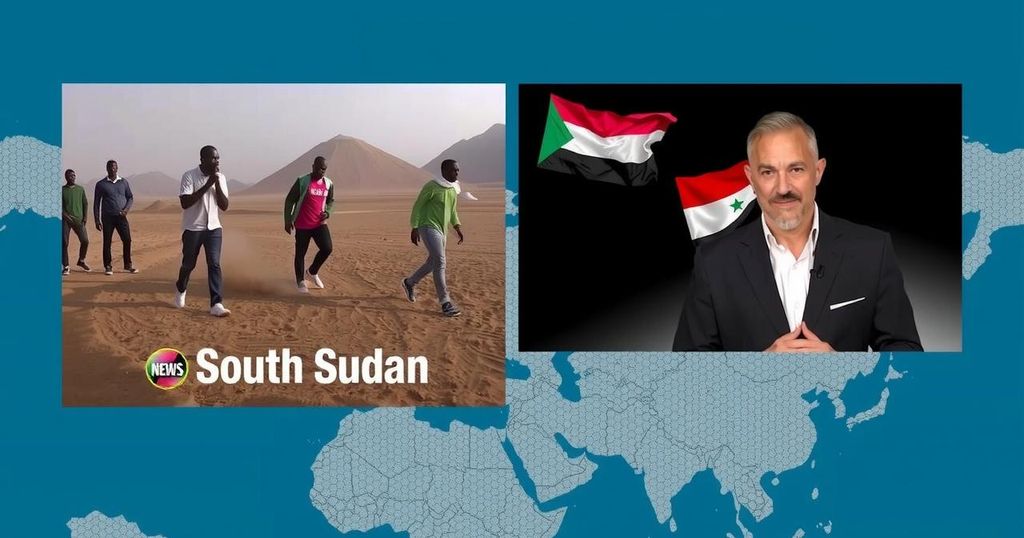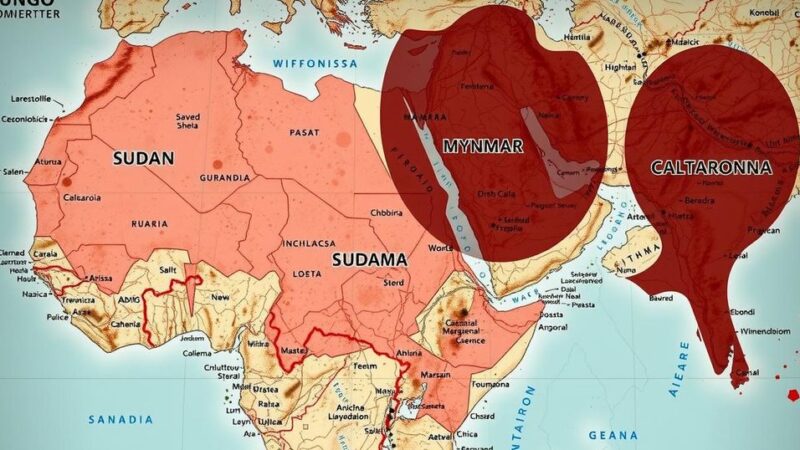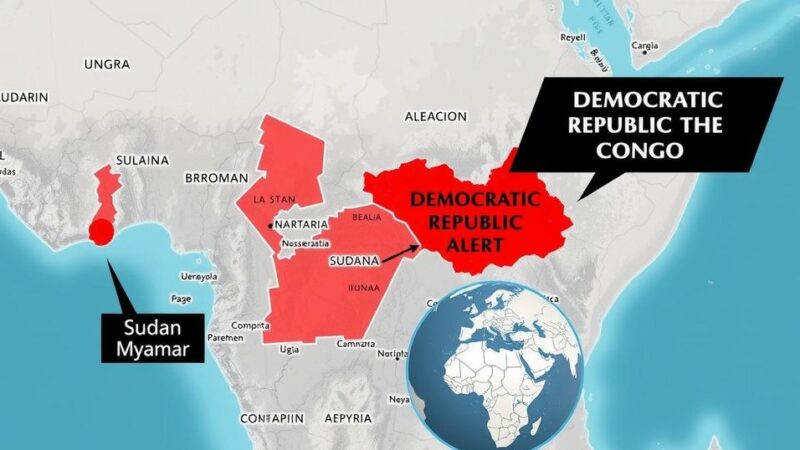The UN reports escalating communal violence in South Sudan, with significant tolls on civilians, particularly in Warrap and Central Equatoria states. In Syria, the WHO’s first humanitarian air charter of 2025 arrived with critical medical supplies, while the WHO and OCHA continue to address humanitarian needs. In Gaza, severe weather has resulted in child fatalities, and access to aid remains heavily restricted in besieged areas.
The ongoing conflict in South Sudan continues to inflict severe suffering on its civilian population, as emphasized in a recent report by the United Nations Mission in South Sudan (UNMISS). The period from July to September last year marked a disturbing rise in violence, highlighted by a significant increase in abductions and incidents of combat-related sexual violence. The report revealed that 299 non-combatants lost their lives, while many others sustained injuries or were abducted.
Particularly alarming is the concentration of violence in Warrap State, where over 60 percent of all recorded casualties occurred. Central Equatoria State has been identified as the location with the highest number of abductions. Additionally, the leader of UNMISS, Nicholas Haysom, condemned the disturbing trend of escalating violence against women and reiterated the necessity for accountability regarding human rights violations. He called upon various authorities to collaboratively address the root causes of conflict.
In a separate update regarding Syria, the World Health Organization (WHO) dispatched its first humanitarian air charter of 2025, delivering over 32 tons of essential medical supplies to Damascus to support approximately 300,000 individuals in need. This delivery follows previous efforts aimed at addressing immediate medical needs across various regions, including the allocation of critical supplies in Tabqa and Ar-Raqqa.
Moreover, WHO is enhancing its humanitarian response on the ground by providing vital training for paramedics engaged in trauma care during the ongoing health emergency. The UN Office for the Coordination of Humanitarian Affairs (OCHA) noted that the World Food Programme has resumed food distribution efforts, but operational constraints continue to challenge relief delivery, particularly in war-affected regions.
Tragically, the situation in Gaza has also deteriorated, with reports confirming the death of a one-month-old infant due to hypothermia, a consequence of inadequate shelter and supplies. The UN highlights multiple incidences of civilian casualties, emphasizing the need to protect humanitarian workers and essential infrastructure. Access to aid for besieged areas in Northern Gaza remains severely restricted, further compounding the crisis.
The article discusses the ongoing humanitarian crises in South Sudan, Syria, and Gaza, focusing on the impact of communal violence, health emergencies, and severe weather conditions affecting vulnerable populations. The UN agencies, particularly UNMISS and WHO, are actively involved in responding to these crises through peacekeeping efforts, humanitarian aid deliveries, and medical assistance. The reports illustrate a dire need for accountability and international humanitarian adherence to protect civilians and facilitate aid access amidst political and logistical challenges that exacerbate the suffering of those affected.
In conclusion, the reports from South Sudan, Syria, and Gaza illustrate a complex web of humanitarian challenges driven by violence, health emergencies, and environmental factors. With rising death tolls and increasing barriers to aid, the need for communal and governmental cooperation has never been more crucial. The international community, through agencies like the UN, continues to strive for effective responses, but significant obstacles persist, emphasizing the urgency for sustained humanitarian efforts and accountability for violations of human rights.
Original Source: www.globalissues.org







